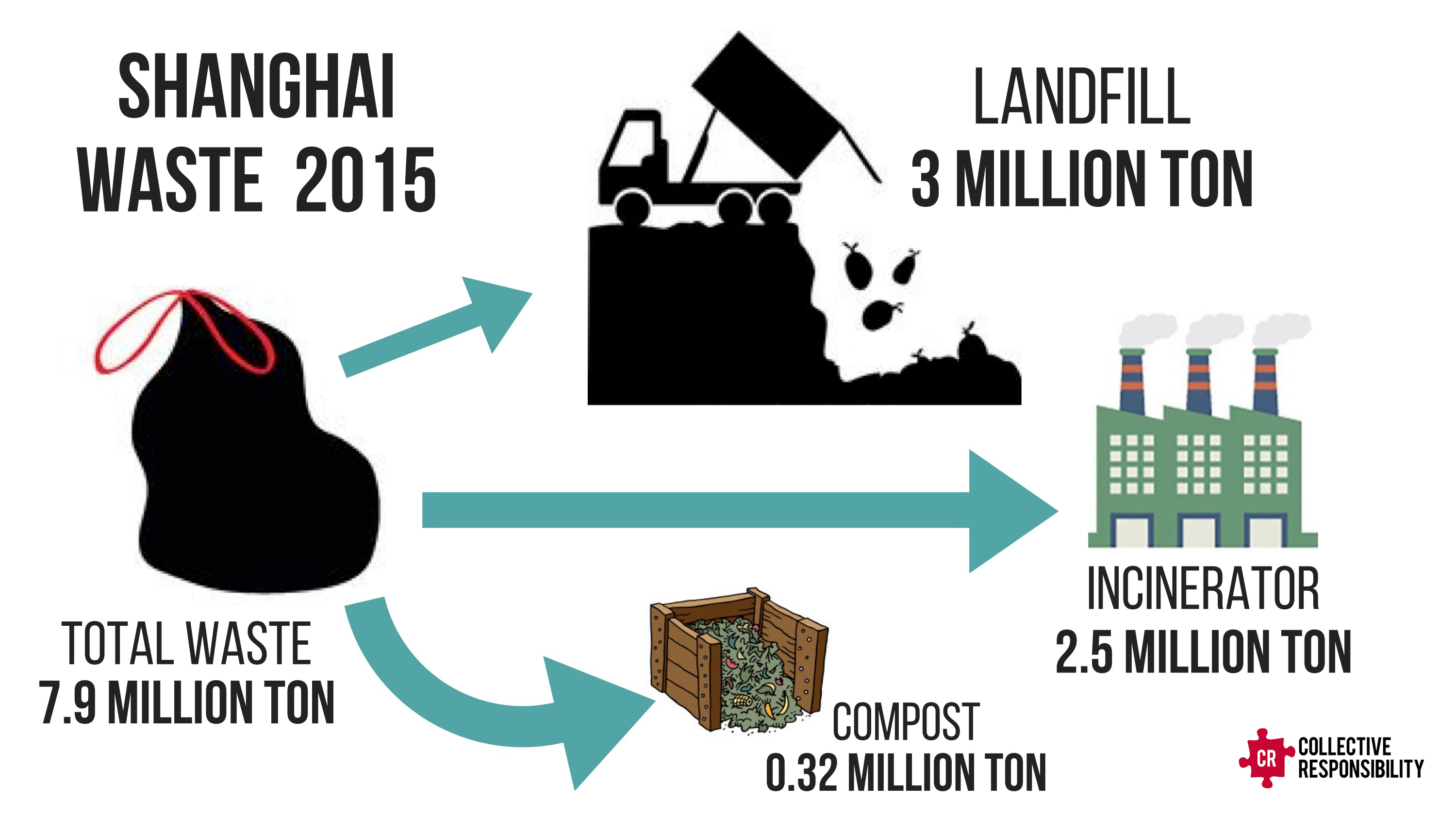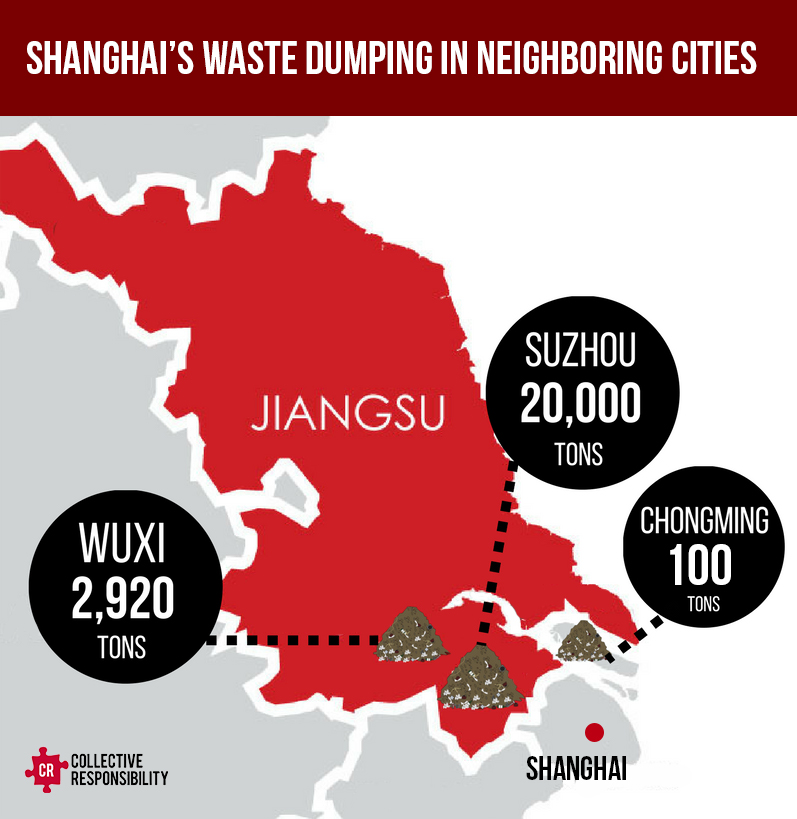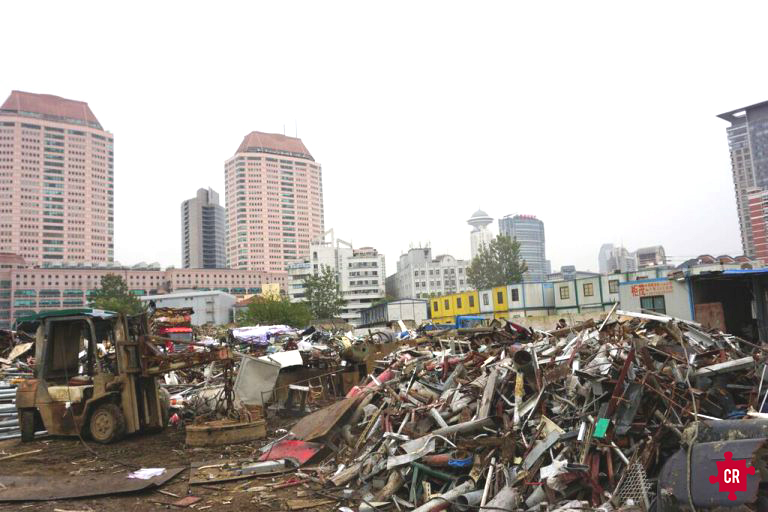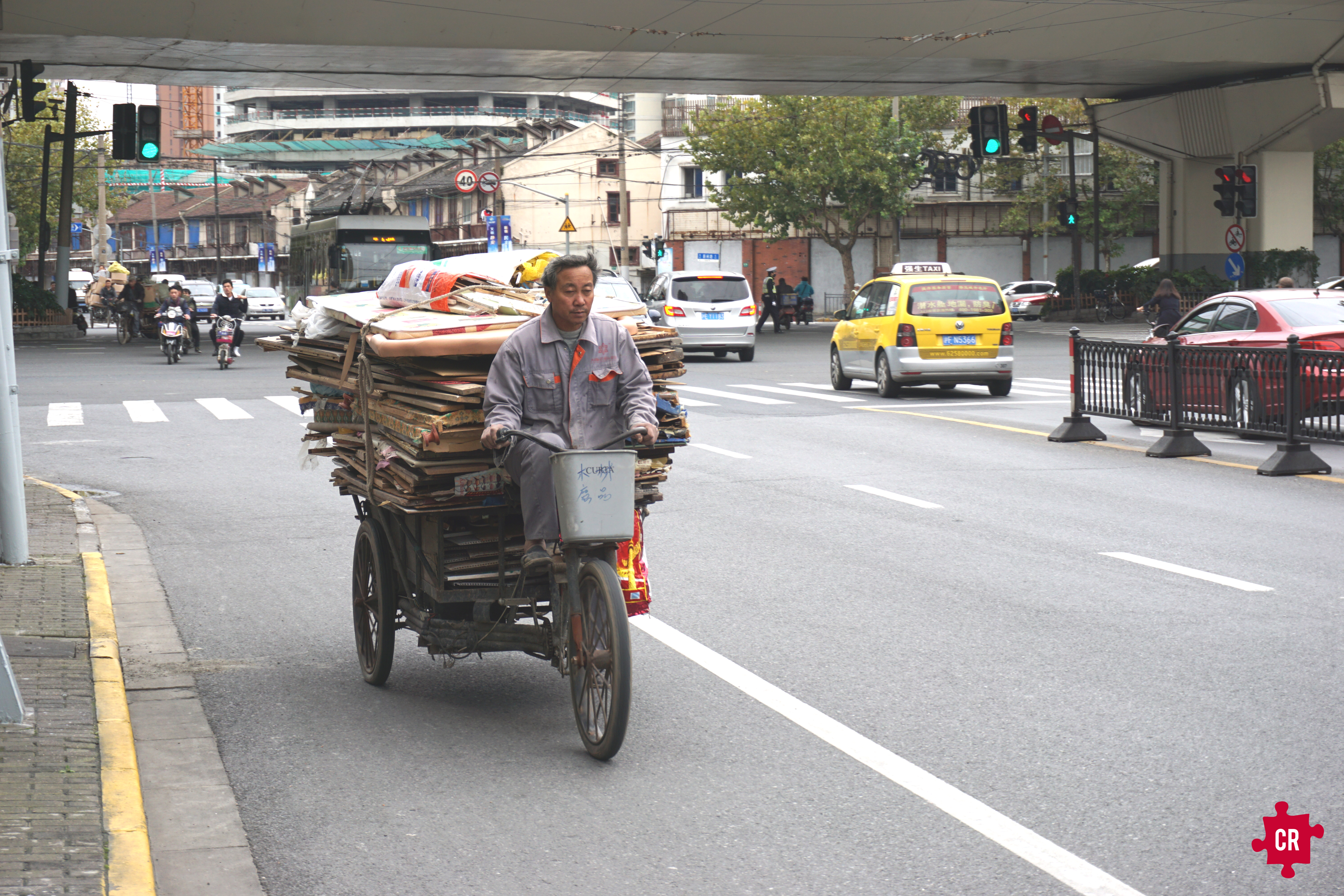China’s waste management system is feeling the heat.
Over the past few months, scandals from illegal dumping to capacity reaches of major landfills have exposed the complexities of Shanghai’s waste stream – and the challenges that exist in controlling its management.
These issues are not unique to Shanghai – they represent broader trends and issues of consumption growth in many of China’s cities. With millions more citizens expected to move to these cities in the next few years, failing to tackle waste and waste management inefficiencies now could result in serious, long-term implications.

Challenges for China’s Informal Waste System
Shanghai represents the first model for modern-day rapid urbanization, and assessing its system can not only shed light on the city’s inner workings but also indicate the kinds of challenges other rapidly developing cities may encounter in the near future.
For waste in Shanghai, there exists two parallel system of waste management to deal with this: the formal system that is government-affiliated, and the informal system that relies on market mechanisms to trade material picked from the waste stream through a network of individuals for reprocessing.
Both these systems are vital to the city’s efficiency, but it is the informal network that provides the fundamental role in reclaiming material of value and diverting it away from landfill. In doing so, the informal system serves both a social and economic purpose by reducing waste on the streets through collection, while employing thousands of people within the sector.
Over recent years, however, changes in government frameworks and Shanghai’s infrastructure have begun to place pressure on the informal system, making it harder to thrive. In this article, we outline three reasons for this pressure: government regulations, space issues, and perception of waste.
1. Government Regulations
The Shanghai government is starting to place pressure on the waste system as a whole to clean up its act. For the informal sector, the crackdown largely stems from two main areas: environmental standards and transparency of the waste system.
Currently, many factories in and around Shanghai are subpar at best, and there is little public understanding of the logistics in materials flows, treatment techniques, and processing. Recent illegal dumping scandals have only increased pressure on the government to act, and change is on the horizon.

In June 2016, the government drafted new legislation that placed additional responsibility on the producers of construction and demolition (C&D) waste to separate and categorize their waste. While there is little evidence of this occurring yet, it shows impetus from the government to place additional pressure on the industry.
Similarly, in late 2016, failure to meet environmental standards forced paper and pulp factories outside of Shanghai to halt activities, a move that majorly disrupted China’s secondary and virgin paper market.
2. Space Issues
Shanghai is quickly becoming one of the world’s most desirable places to live, and land and housing prices are soaring. Traditionally, Shanghai collection centers – places where informal collectors bring collected resources – operated in the center of the city with relatively little disruption. But with the growing pressure of real estate, land has become increasingly sought after, pushing the centers further and further out of the city.
In Huangpu district alone, four informal collection centers have been taken down over the past ten years. The remaining facilities are small storefronts, solitary collectors on street corners, and small swapping points – all with limited capacity.
The end result is that waste must be transported to collections centers in Jiangsu. While it does not reduce the capacity of the system per se, the efficiency of the system can suffer when waste peaks.

3. Perception of Waste
Linked to the increasing house prices in central Shanghai is a growing expectation of residents, and people are no longer willing to put up with visible waste and the operations that surround waste as part of their lives. It is considered a dirty and dishonorable profession, despite the earning potential in the industry.
This form of NIMBY (“not in my backyard”) syndrome is common in many developing countries and, despite conflicting with greater public needs, can lead to policy decision-making that moves operations away from designated areas.
Actors in China’s informal sector have to deal with this growing reality, and more frequent movement based on construction patterns is becoming commonplace.
The reality of Shanghai’s waste system is that a movement to a more formalized system is becoming the trend. While a total shift is still a long way off, it is a transition that must be well-managed to absorb the most efficient parts of both formal and informal systems. The informal system generates recycling efficiencies that surpass those of many of the world’s top systems; without this efficiency, considerable resources would surely be lost.
As one manager of a large collection center put it, “Tricycles come to my site daily. They collect from the fruit shops and residential buildings. There are so many kuaidis (express deliveries) nowadays, without them, the street will be flooded with packages.”

Without the tricycle-bound informal collectors, waste would probably still be removed from the streets but strain the capacity of formal system institutions. Otherwise, recoverable materials would be sent to landfill or simply lost to incineration, a situation that is best avoided as China anticipates increasing levels of consumption in its growing economy.
For more articles on this topic, check out our Waste in China tag. Follow Collective on social media to receive updates on our latest articles, reports, and events.
